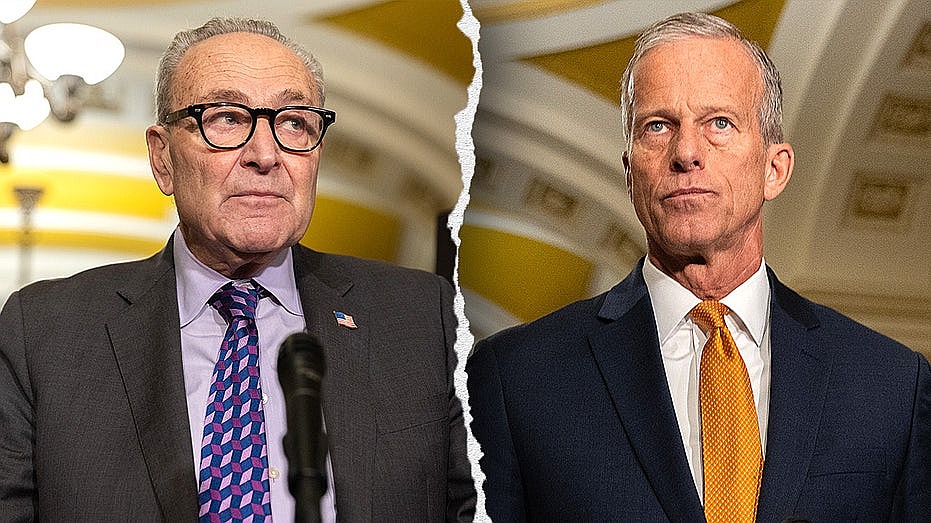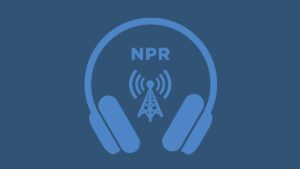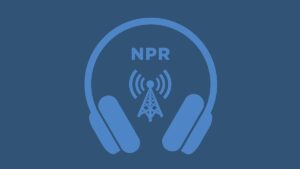Senate talks show signs of progress as government shutdown grinds into 2nd month
In a significant development within the Senate, lawmakers from both parties are increasingly engaging in discussions aimed at resolving the ongoing government shutdown, which has now lasted for 31 days. While there is a sense of cautious optimism, neither side has confirmed a concrete plan to end the deadlock. The Senate Appropriations Committee members, in particular, have started to collaborate more closely, exploring the possibility of extending the House-passed continuing resolution (CR) to provide additional time for finalizing appropriations bills. Senate Democrats are also working on a funding package that they are sharing among their members, signaling a shift towards more constructive dialogue.
Despite these positive signs, the reality remains complex. Senate Democrats recently blocked a Republican CR for the 13th time, underlining the deep divisions that persist. A key sticking point for Democrats is the need to address expiring Obamacare subsidies before any agreement can be reached to reopen the government. Senate Majority Leader John Thune (R-S.D.) expressed hope regarding the Democrats’ engagement with spending bills, yet he emphasized the urgency of reopening the government, as the legislative process can be time-consuming. Meanwhile, some Senate Republicans, like Sen. John Hoeven (R-N.D.), noted that Democrats are beginning to recognize the dwindling time available to fund the government through the appropriations process, which typically requires bipartisan support due to the 60-vote filibuster threshold.
However, high-level negotiations between party leadership have yet to materialize, and discussions have not reached the Oval Office. Senate Democrats believe that President Donald Trump’s involvement is crucial for any potential agreement, with many asserting that real progress cannot be made until he actively participates in the discussions. Trump has indicated a willingness to speak with Senate Minority Leader Chuck Schumer (D-N.Y.) and House Minority Leader Hakeem Jeffries (D-N.Y.) but only after the government is reopened. This has led to frustration among Democrats, who feel that any future talks are being unnecessarily delayed. As the pressure mounts—exacerbated by the looming expiration of food benefits for millions and the impact on federal workers—lawmakers recognize the urgency of continuing these discussions. As Sen. Lisa Murkowski (R-Alaska) aptly noted, while there are “talks about talks,” it is essential that these discussions yield tangible results to bring an end to the shutdown and alleviate the growing challenges facing the nation.
Related articles:
– Link 1
– Link 2
There has been a noticeable shift in the Senate over the last week, with lawmakers on either side of the aisle talking more about how to get out of the
government shutdown
.
But it’s not blanket optimism and neither side is ready to announce that an off-ramp to the 31-day shutdown has been finalized. And ultimately, how well the bipartisan talks are going depends on who you ask.
Republican and Democrat rank-and-file members, particularly members of the Senate Appropriations Committee, have started talking more as the week has progressed. There are talks of extending the House-passed continuing resolution (CR) to allow time to finish appropriations bills, and
Senate Democrats
are socializing a package of funding bills among their members.
JOHNSON WARNS AGAINST TRUMP’S DEMAND FOR SENATE TO GO ‘NUCLEAR’ TO END SHUTDOWN
However, the reality is that Senate Democrats again blocked the GOP’s CR for a 13th time, and lawmakers only got one chance to vote on the bill before leaving Washington, D.C., on Thursday.
And Senate Democrats are still largely entrenched in their position that expiring Obamacare subsidies must be dealt with before the government reopens, even with the offer of a vote on the matter after the CR is passed.
Senate Majority Leader
John Thune
, R-S.D., was encouraged by Senate Democrats socializing spending bills on their side of the aisle, but he still contended that given the amount of time it takes to process funding bills on the floor, the best option was to reopen the government.
“Unfortunately, doing all that takes a while,” Thune said. “Even if you got consent, it still, it’d take a while to move those bills across the floor. So we’ve got to reopen the government.”
Sen. John Hoeven, R-N.D., said that his Democratic counterparts were beginning to realize that time was running out to actually fund the government through the appropriations process, which is a generally bipartisan affair in the upper chamber given the 60-vote filibuster threshold.
When asked if he felt closer to an end to the shutdown now than a month ago, he said, “Yes.”
“I was hoping we’d break the logjam this week, and if we don’t get it done this week,” Hoeven said, “I’m sure hoping it gets done next week.”
THUNE, GOP REJECT PUSHING ‘RIFLE-SHOT’ GOVERNMENT FUNDING BILLS DURING SHUTDOWN
However, the conversations have not yet evolved into high-level talks with Republican and Democratic leadership, nor have they made their way into the Oval Office.
Thune noted earlier in the week that President
Donald Trump
offered to speak with Senate Minority Leader Chuck Schumer, D-N.Y., and House Minority Leader Hakeem Jeffries, D-N.Y., next week — only after the government reopens.
“They always say, ‘Do it later, do it later,’” Schumer said. “Later, to quote Martin Luther King Jr., and his letter from the Birmingham Jail, means never.”
And Trump, for many Senate Democrats, will be a key player in how the shutdown ends. They argue that his input is inevitably the end-all-be-all for an agreement Republicans might concoct on the Hill.
SCHUMER, DEMS CALL ‘BULL—-‘ ON TRUMP ADMINISTRATION OVER FOOD STAMP SHUTDOWN THREAT
“Ultimately, you need him,” Sen. Chris Murphy, D-Conn., said. “I mean, this is — they’re not going to move until Trump tells them to move. So until you hear something real from Donald Trump, it doesn’t feel like anything is real.”
And Republicans view that the only true way that the shutdown ends is if Schumer unlocks the votes needed to break the filibuster threshold in the Senate, or if a handful of Senate Democrats defect.
“Well, I don’t know what else to do,” Sen.
John Kennedy
, R-La., said. “I voted 13 times to open the government up. Most of my colleagues have, I think probably the shutdown is not going to end until my friend, Senator Schumer, takes his ego out back and shoots it.”
Still, lawmakers believe that talks are good and need to continue in order for the off-ramp out of the shutdown to be finished.
That, plus the added pressure of food benefits running dry for millions, federal workers going without pay and flights getting delayed or canceled, could see both sides move closer toward the middle.
“There’s talks about talks,” Sen. Lisa Murkowski, R-Alaska, said. “But we need talks to yield results, right?”
When asked if there had been any progress, Murkowski said, “I’ll go check,” before the senators-only elevator door slid shut. Lawmakers left town for the weekend shortly after.
Eric
Eric is a seasoned journalist covering US Politics news.



